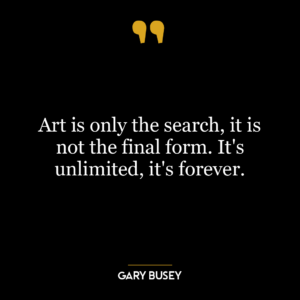This quote is a profound exploration of the nature of existence and consciousness. It suggests that the ultimate outcome of life, its highest achievement, is not material wealth or physical prowess, but rather the development of one’s awareness. Awareness here refers to the ability to perceive, to feel, to understand, and to have knowledge of the world and oneself. It is the consciousness that allows us to experience and interact with the world.
The second part of the quote, “Your awareness is existence,” takes this concept a step further. It suggests that existence itself is not defined by physical presence, but by awareness. In other words, our ability to perceive, to think, to experience – that is what truly constitutes existence. This implies that existence is not a passive state, but an active process of perceiving and understanding.
This idea can be applied in today’s world or in personal development in several ways. In an era where material success is often valued above all else, this quote serves as a reminder that our inner lives – our thoughts, our emotions, our experiences – are of equal, if not greater, importance. It encourages us to cultivate our awareness, to strive for a deeper understanding of ourselves and the world around us.
In terms of personal development, this quote suggests that the path to self-improvement lies not just in acquiring new skills or achieving external goals, but also in enhancing our awareness. This might involve practices such as mindfulness or meditation, which train the mind to focus, to observe, and to understand. It might also involve a commitment to lifelong learning, to constantly broadening our knowledge and understanding of the world.
In essence, this quote reminds us that we are not just physical beings, but thinking, feeling, perceiving entities. It encourages us to value and cultivate our awareness, and to see this as the ultimate measure of our existence.




